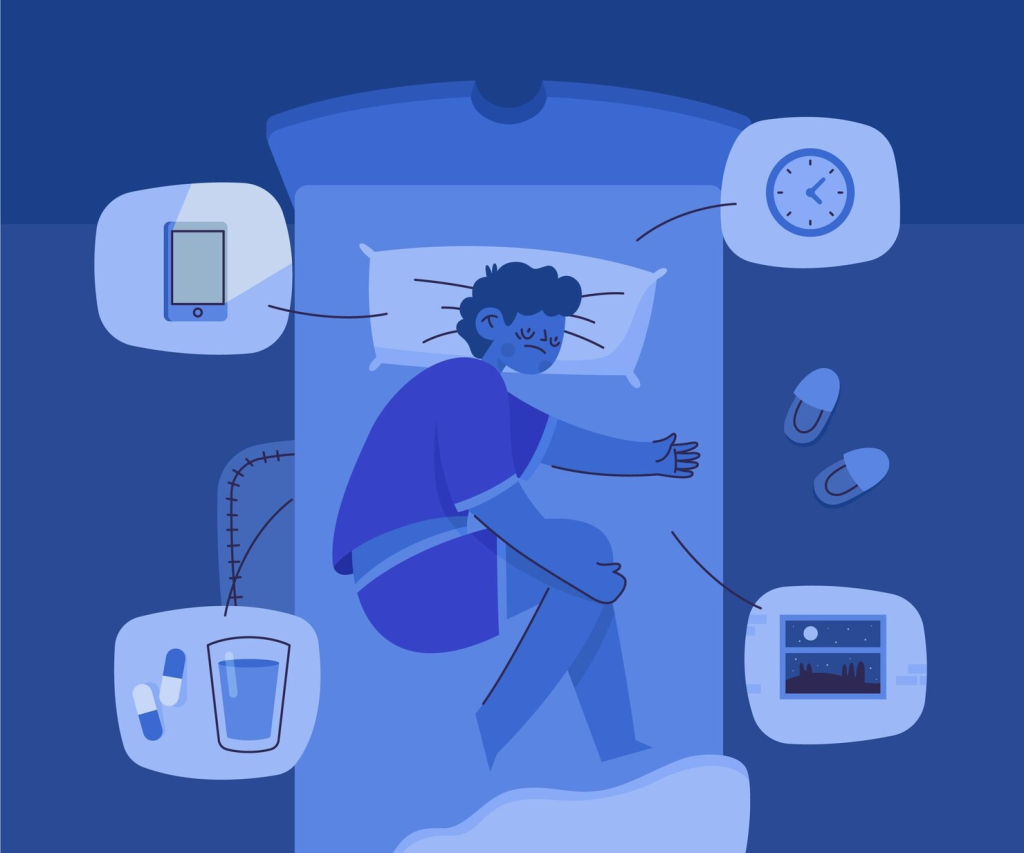Struggling to fall asleep or stay asleep? You’re not alone. Millions of people suffer from sleep disturbances, but many turn to medications as a quick fix. However, relying on pills isn’t the only solution. In this article, we’ll uncover the secret to a better night’s sleep without medications and show you natural, effective ways to improve your sleep quality.

1. Create a Consistent Sleep Schedule
One of the simplest yet most effective ways to improve your sleep is by sticking to a consistent sleep schedule. Your body has an internal clock, known as the circadian rhythm, which regulates your sleep-wake cycle. Going to bed and waking up at the same time every day—yes, even on weekends—can help synchronize your internal clock, making it easier to fall asleep and wake up naturally.
This routine helps regulate your body’s production of melatonin, a hormone that plays a key role in sleep. A consistent schedule can significantly improve the quality and depth of your sleep.
2. Optimize Your Sleep Environment
Your sleep environment plays a critical role in how well you rest each night. If your bedroom is noisy, too hot, or filled with distractions, it can hinder your ability to sleep deeply. To optimize your environment, consider the following tips:
- Keep it cool: Aim for a room temperature between 60 and 67°F (15.6 and 19.4°C), which is considered ideal for sleep.
- Reduce light exposure: Dim the lights in the evening and avoid bright screens at least 30 minutes before bed. Consider using blackout curtains or an eye mask to block out external light.
- Limit noise: Use earplugs or a white noise machine if external sounds disturb your sleep.
Creating a calming atmosphere will signal your body that it’s time to wind down and prepare for sleep.
3. Practice Relaxation Techniques
Stress and anxiety are common culprits of sleepless nights. To combat this, try incorporating relaxation techniques into your bedtime routine. Simple activities such as deep breathing, progressive muscle relaxation, or meditation can help calm your mind and prepare your body for sleep.
Consider trying these methods before bed:
- Deep breathing exercises: Breathe in slowly for a count of 4, hold for 4, and breathe out for 4. Repeat for a few minutes to reduce stress.
- Progressive muscle relaxation: Start from your toes and work your way up, tensing and then relaxing each muscle group to release tension.
- Mindfulness meditation: Use a meditation app or simply focus on your breathing to clear your mind of racing thoughts.
These practices can help lower cortisol (the stress hormone) levels, enabling your body to transition into a restful state.
4. Watch What You Eat and Drink
What you eat and drink throughout the day can greatly affect your sleep. Avoid heavy meals, caffeine, and alcohol close to bedtime. Caffeine, in particular, can interfere with your ability to fall asleep and stay asleep, as it blocks the action of adenosine, a sleep-promoting neurotransmitter.
- Caffeine: Limit caffeine consumption to the morning hours, and avoid coffee, tea, and chocolate in the afternoon and evening.
- Heavy meals: Eating large or rich meals before bed can cause discomfort and indigestion, making it difficult to sleep. Try to finish eating at least 2-3 hours before bedtime.
- Alcohol: While alcohol can make you feel sleepy, it disrupts sleep later in the night, leading to fragmented rest.
Instead, opt for a light snack that promotes sleep, such as a banana or a small serving of cherries, which contain natural melatonin.
5. Get Moving During the Day
Regular physical activity has been shown to improve sleep quality and reduce insomnia. However, be mindful of when you exercise. Exercising too close to bedtime can make it harder to fall asleep, as it increases adrenaline levels and raises your body temperature.
Aim for at least 30 minutes of moderate exercise most days of the week, but try to finish any intense workouts at least 3-4 hours before bed. Activities like walking, swimming, yoga, or cycling can help promote a restful night’s sleep and reduce the time it takes to fall asleep.
6. Limit Screen Time Before Bed
The blue light emitted from phones, tablets, and computers can interfere with your body’s production of melatonin, making it harder to fall asleep. To improve your sleep quality, it’s important to reduce screen time before bed.
- Try to avoid electronics at least 30 minutes to an hour before going to sleep.
- Consider using blue light-blocking glasses if you must use screens at night.
- Alternatively, switch to a blue light filter on your devices or enable the “Night Mode” function to reduce blue light exposure.
By cutting down on screen time, you’ll help signal your brain that it’s time to wind down for the night.
7. Incorporate Natural Sleep Aids
While medications are often used to promote sleep, there are several natural sleep aids that can help you fall asleep without side effects. Consider trying herbal teas like chamomile or valerian root, both of which have natural sedative properties.
Additionally, magnesium supplements or melatonin may help improve sleep for some individuals. However, it’s important to speak with your healthcare provider before trying any new supplements to ensure they’re safe and effective for you.
Achieving a better night’s sleep doesn’t have to involve medications. By creating a consistent routine, optimizing your sleep environment, managing stress, and making mindful choices about your diet and exercise, you can significantly improve your sleep quality. Incorporating natural techniques and sleep aids can also be highly beneficial in promoting restful, uninterrupted sleep. Start small, experiment with what works best for you, and enjoy the benefits of better sleep for your overall health and well-being.
References:
- Sleep Foundation: “How to Build a Sleep Schedule”. Available at: https://www.sleepfoundation.org/sleep-topics/how-to-build-a-sleep-schedule
- Sleep Foundation: “Caffeine and Sleep”. Available at: https://www.sleepfoundation.org/nutrition/caffeine-and-sleep
- Psychology Today: “How Hobbies Can Improve Mental Health”. Available at: https://www.psychologytoday.com/us/basics/self-help/how-hobbies-can-improve-mental-health









